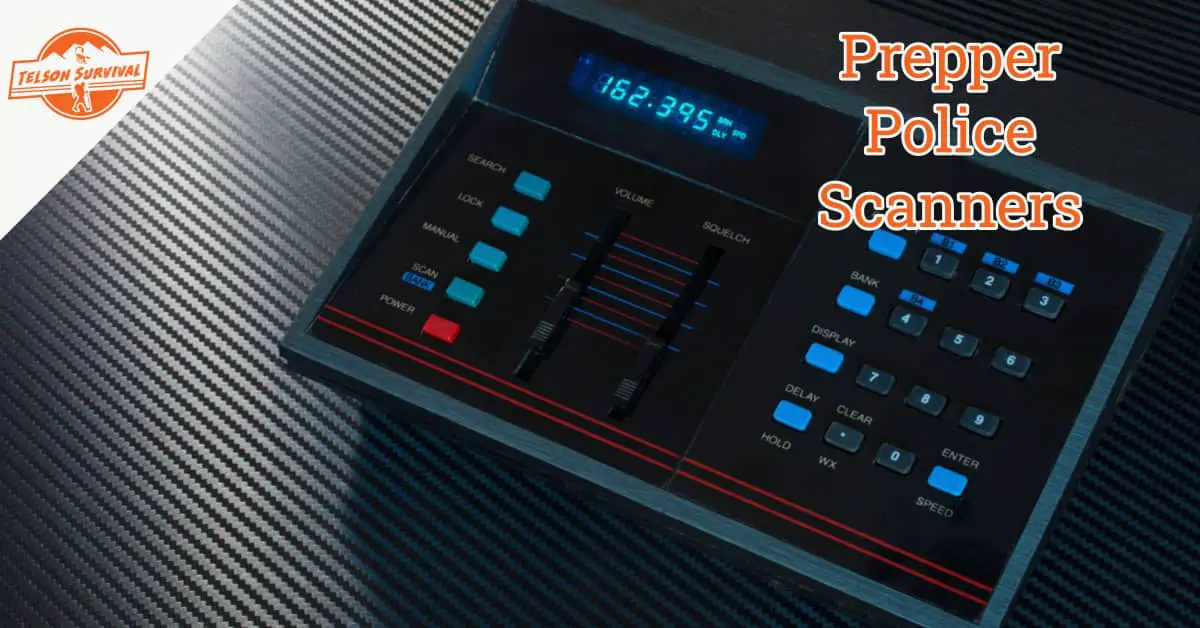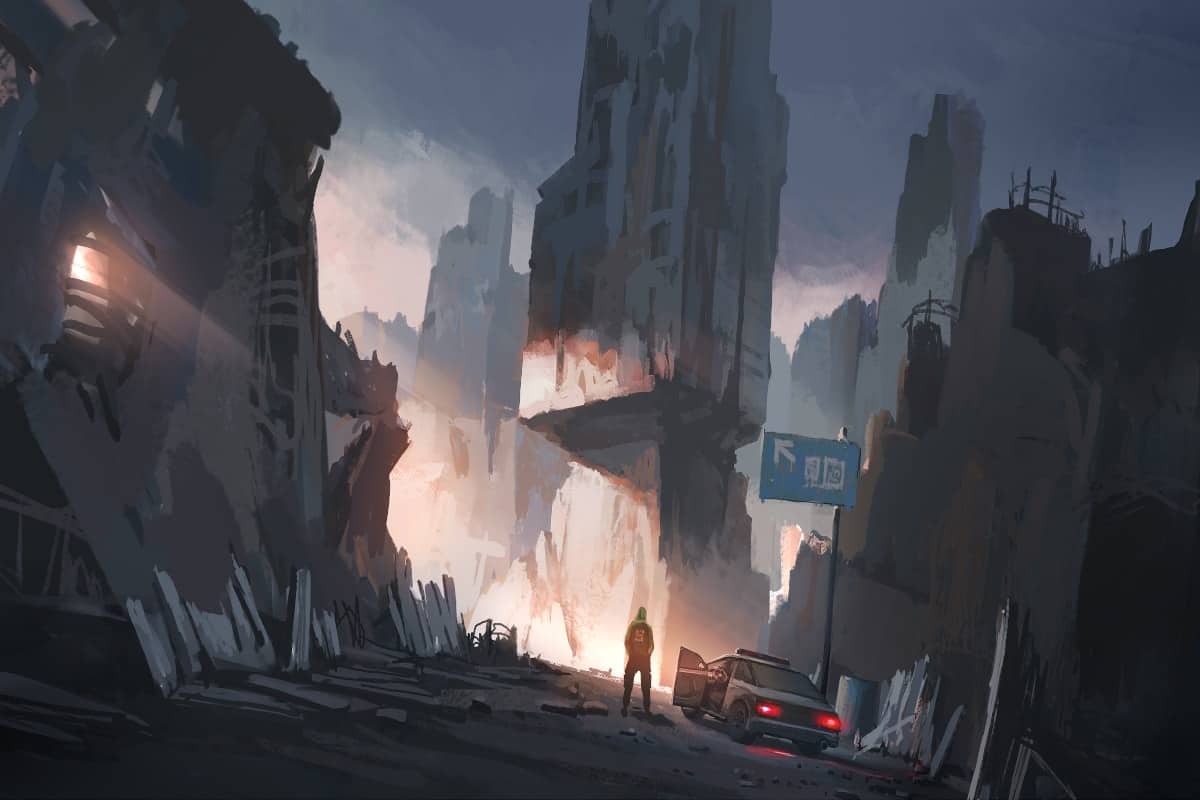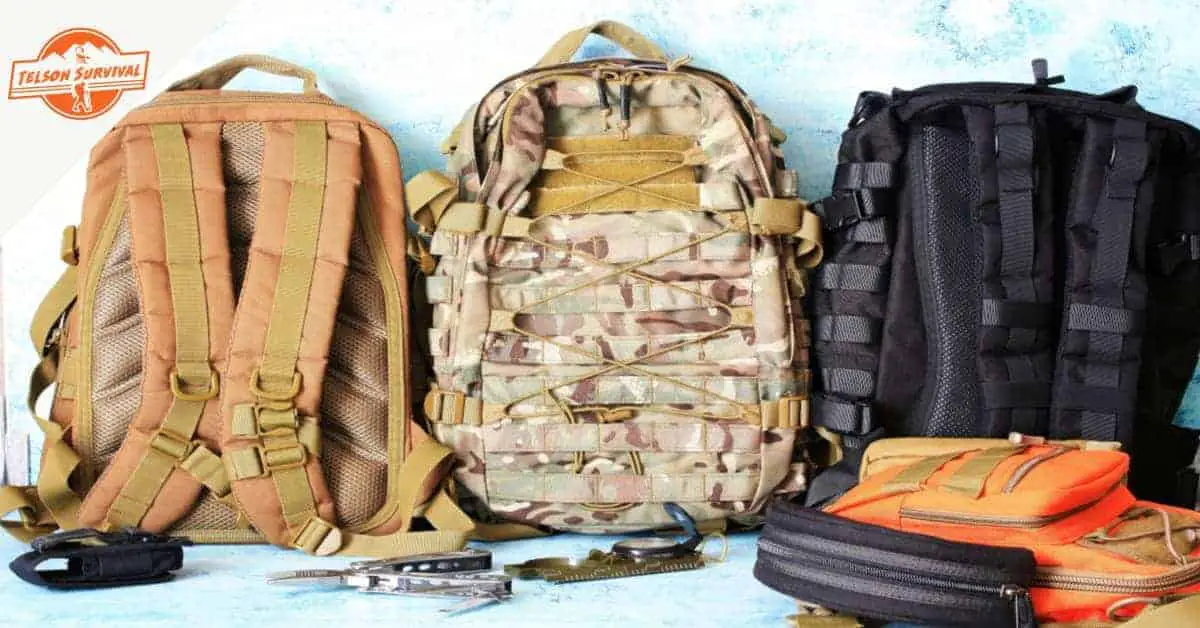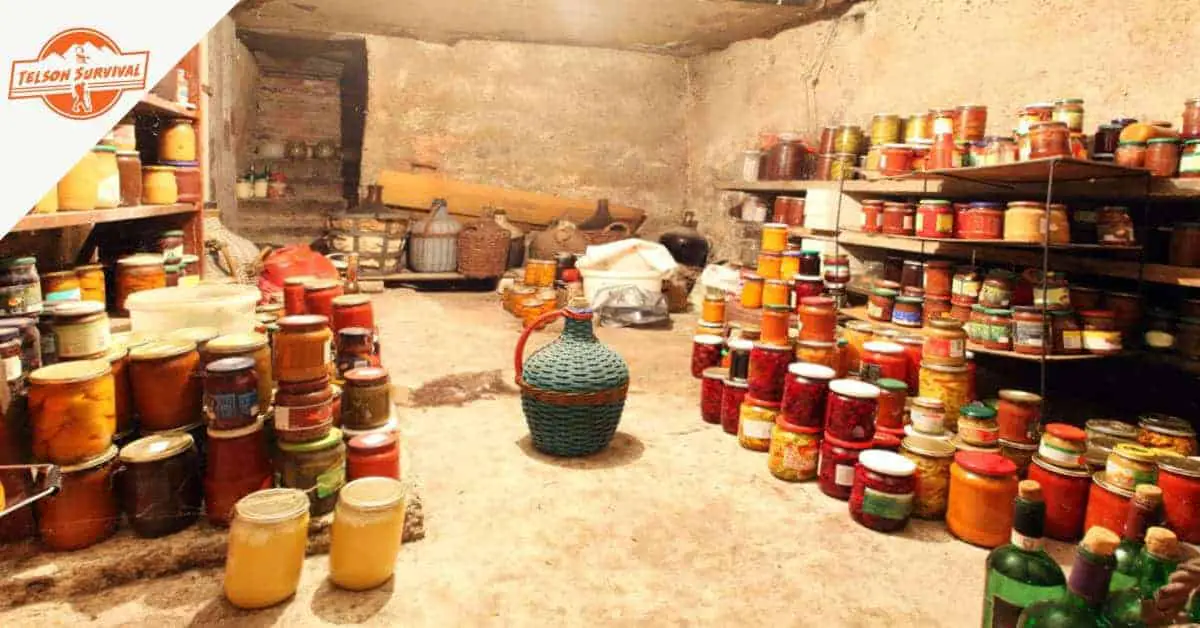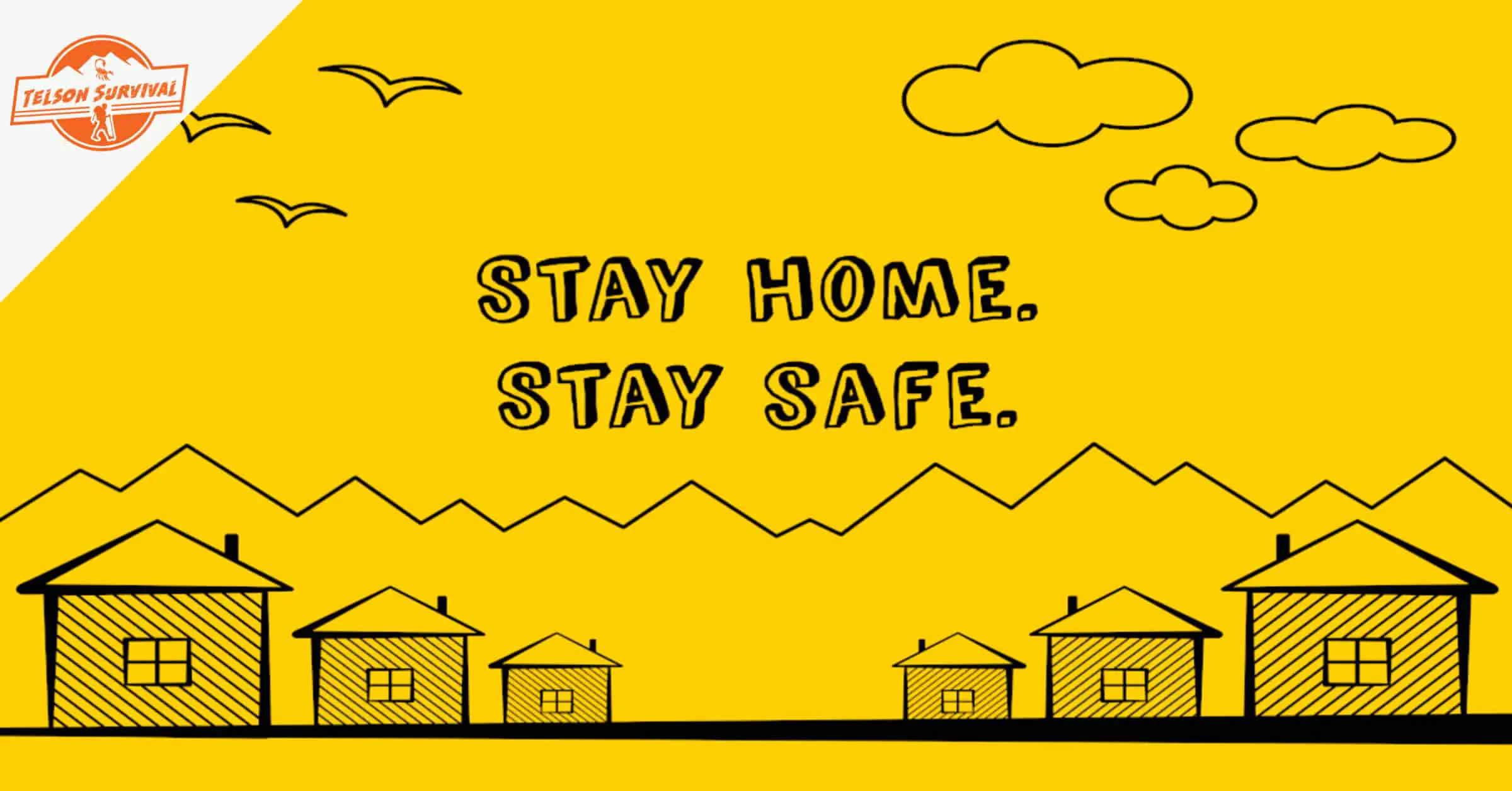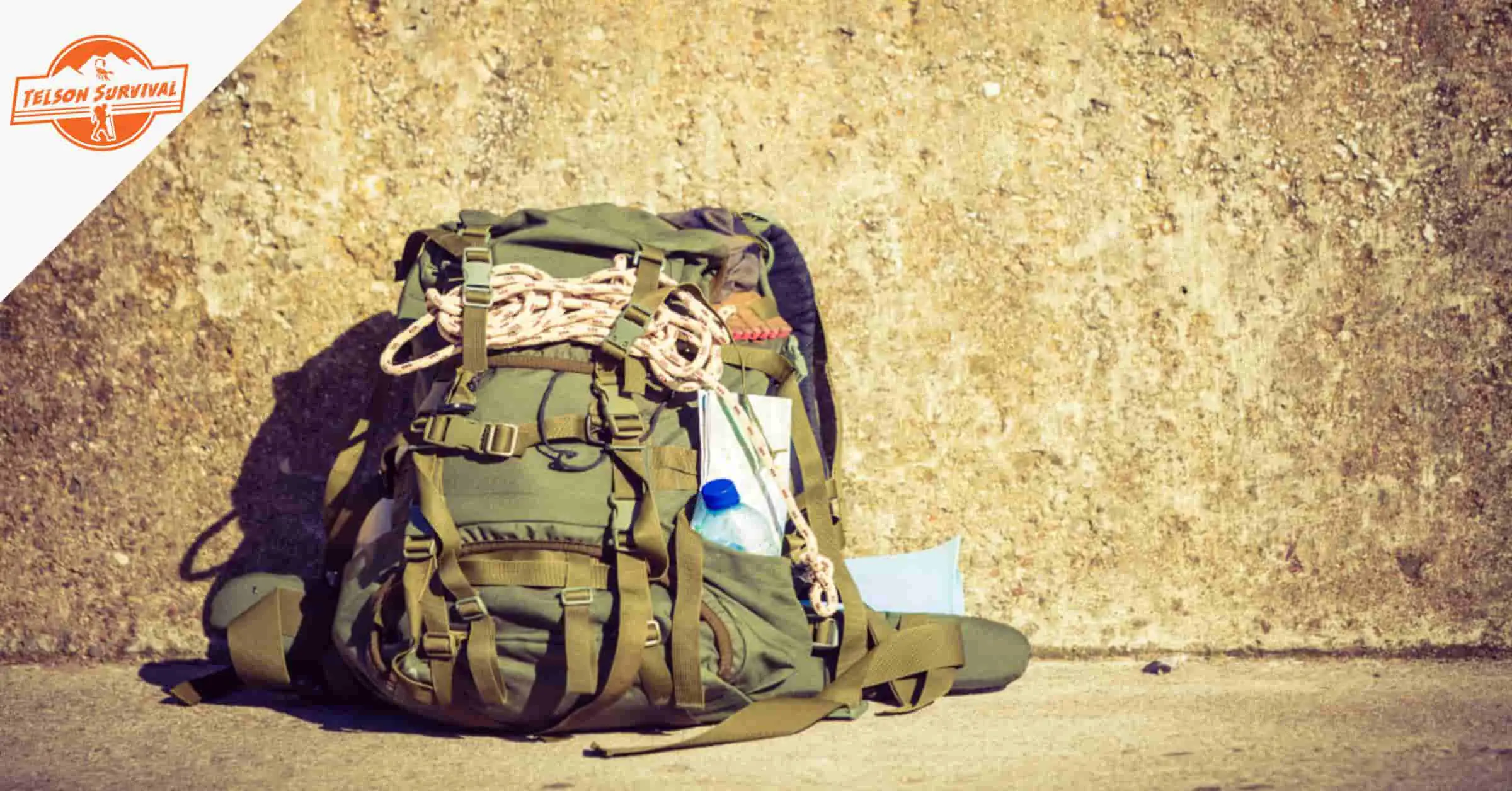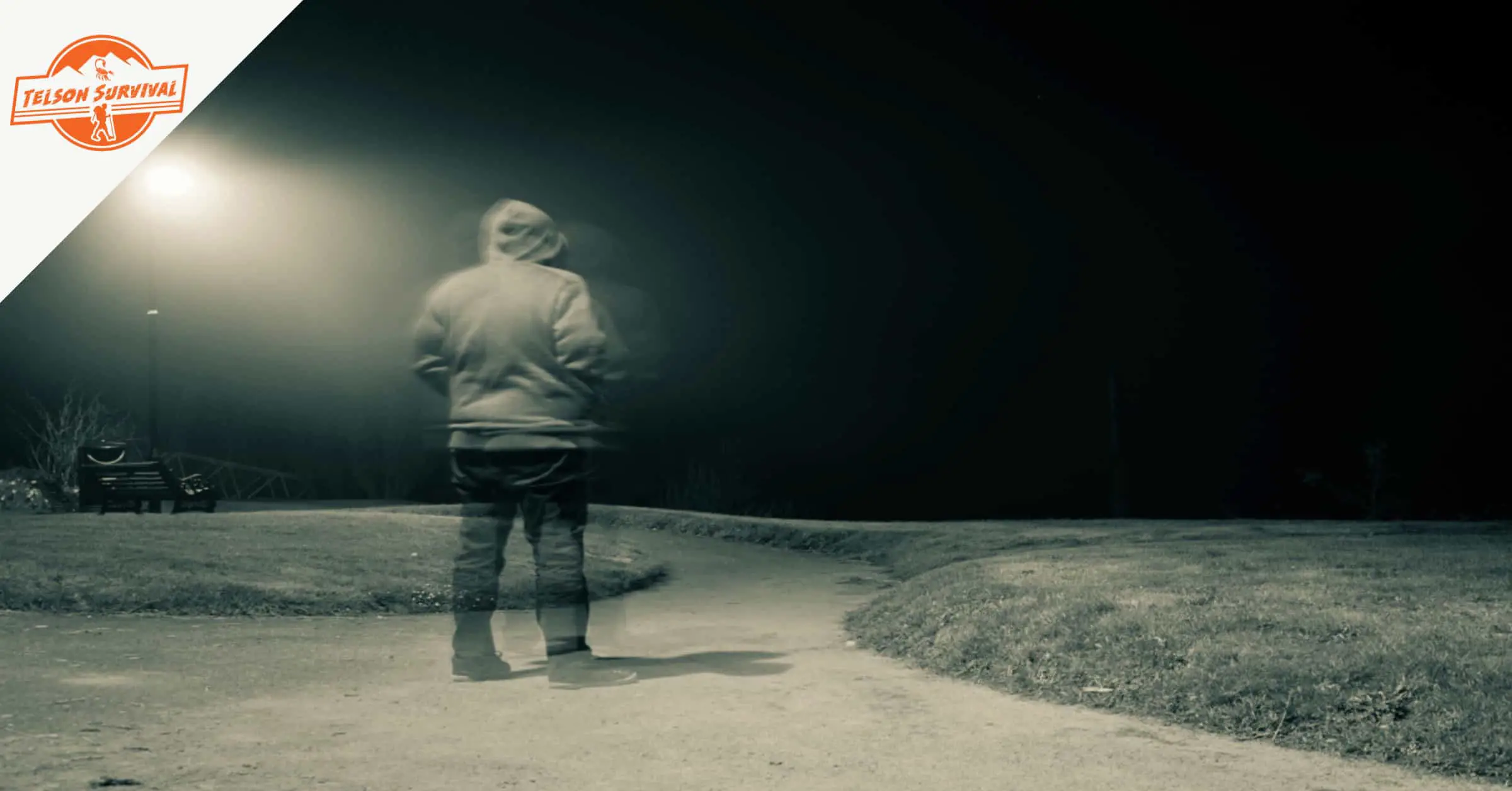When SHTF, conventional communication avenues might be shut down. Naturally, any crisis dramatically increases the need to keep in touch and informed. Can police scanners help?
Today, we discuss police scanners and the role they can play for survivalists looking to keep their fingers on the pulse. We touch on several key issues around these devices and identify some of the best prepper scanners you can buy today.
The best prepper scanner is the Uniden Bearcat BC125AT, a handheld digital scanner that has access to 500 alpha-tagged channels, including police, weather warnings, and ambulances. The scanner’s portability suits the survivalist lifestyle and its backlit LCD screen allows for easy use during daytime or at night.
In a hurry? If you just want to get to our conclusions, here are our top picks and recommendations!
You Save $30.99
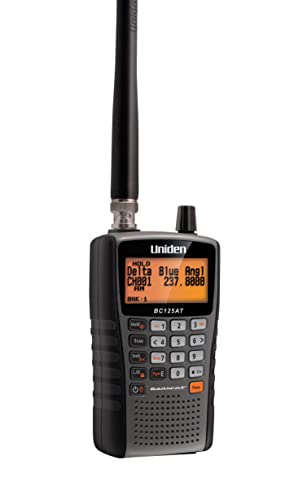
You Save $26.37

You Save $40.68
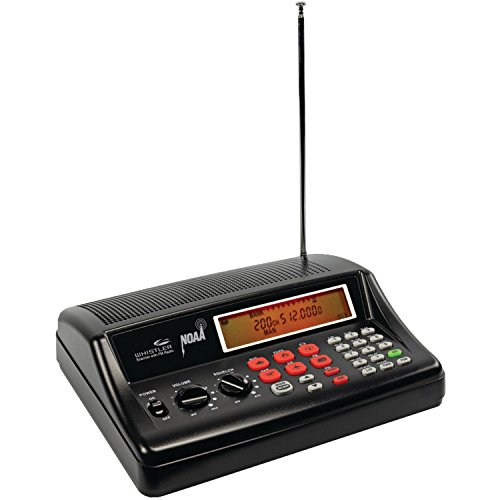
Last update on 2025-01-15 / Affiliate Links / Images from Amazon Product Advertising API
What is a police scanner and do preppers need one?
We’ve all watched police movies and TV shows where codes like “10-4” or “10-851” are constantly barked over the radio, which often prompts cops into action. I often laugh at how police officers nonchalantly work their patrol car scanners while pursuing a cellphone-wielding “suspect”.
These two-way communication devices not only look cool, but they facilitate the quick relay of messages and (more importantly) quick responses.
A scanner is a radio receiver that searches (or scans) through channels for communication frequencies to connect to for the creation of communication transmissions. These transmissions are known as two-way calls because users at both ends of the transmission can receive or relay information to each other.
Scanners are commonly referred to as "police scanners" because they are most widely used for law enforcement purposes. The police even have dedicated scanner shortcodes such as the aforementioned 10-851 (which is code for "grand theft auto").
However, scanners are also used in the military, the medical field (especially ambulances), air traffic control, private security, fire departments, haulage, and (you guessed it) … survival.
To stand a chance of making it through a catastrophe, preppers must be able to anticipate a bunch of key needs. Communication is one of these needs, and it could be instrumental to your ability to access other needs like food, water, and tools.
“But I have a smartphone. Why would I need a police scanner?”
Some of our younger readers might not know it, but LONG before smartphones, radio scanners were quite common in American households, especially out in the country.
Because a lot of channels were (and continue to be) open and accessible to anyone, people used them as a window into the outside world. They were used for sourcing key information, monitoring crime, storm watching, or some good old gossip.
Of course, all of these tidbits have been somewhat integrated into our phones’ buzzy notifications. But for preppers, tidbits are hardly enough, especially where emergency information is concerned.
While phones are undeniably useful, we must consider what the communication landscape would be like in an emergency. It is very possible that the internet and cell service could be shut down indefinitely.
Without this communication infrastructure, bugging out would become exponentially more difficult. While scanner smartphone apps ARE a thing, they may be heavily restricted and reliant on an internet connection.
With scanners, survivalists can quickly open channels to listen in (or eavesdrop) on experts or people on the ground. For instance, if there is a massive hurricane headed inland, accessing your local Coast Guard’s radio channel could help you gain clear information on where the storm is headed. This way you will know which places to avoid, and be able to warn your friends and family ahead of time.
Jumping on to police channels would also help you get live updates of real goings-on in your area or town. When SHTF, expect chaos, panic, and the inevitable flow of disinformation. With scanners, you needn’t worry about links to conspiratorial websites that will only serve to confuse you.
A scanner can also be a lifesaver for you and any companions if you were to get lost or injured. You could easily establish communications with any nearby police, EMTs, or even truckers who would rush to your aid, or at least give you directions or first aid tips.
Best prepper scanners
Now that we’ve established why every prepper should have a police scanner, it is time to identify some examples. Lucky for you, Amazon has some awesome devices that you just have to take a gander at.
It is important to remember that “best” is subjective here because scanners have different form factors and levels of sophistication.
Uniden Bearcat BC125AT Handheld Scanner
With that in mind, let’s discuss one outstanding mobile scanner. The Uniden Bearcat BC125AT is a fantastic handheld scanner that ticks several boxes emphatically. Portable, reliable, affordable, and extremely user friendly. It’s not bad in the looks department either.
Last update on 2025-01-15 / Affiliate Links / Images from Amazon Product Advertising API
This digital scanner has access to about 500 alpha-tagged channels including police, aircraft, marine, and ambulances. As an entry-level scanner, the BC125AT does not have some of the unnecessarily complicated features that are present in more sophisticated scanners. This makes it easier for users to access public safety channels.
Uniden BC365CRS 500 Channel Scanner
Perhaps a desktop digital scanner is more your speed. Uniden has you covered too, thanks to the BC365CRS 500. Yep, the “500” means this scanner has access to 500 channels (Weather, police, etc.).
If you ever get bored of eavesdropping on your local Sherriff’s department, the BC365CRS 500 also has FM radio! You never know the levels of boredom that a crisis could bring you to.
Last update on 2025-01-15 / Affiliate Links / Images from Amazon Product Advertising API
The BC365CRS 500 also boasts an alarm clock, a lovely backlit LCD display, and some really satisfying buttons and knobs. If you ever wanted to feel like an FBI agent, getting this scanner is definitely a step in the right direction.
Whistler WS1025 Analog Desktop Scanner
If you are REALLY old-school, then you should consider an analog solution. The Whistler WS1025 caters to the traditionalists without abandoning the modernists. This scanner has access to 200 channels, which it can memorize and store. You can also program the scanner to bypass useless channels, thanks to its awesome lock-out feature.
Last update on 2025-01-15 / Affiliate Links / Images from Amazon Product Advertising API
The WS1025 also has dedicated Skywarn Storm Spotter functionality, which gives you quick access to storm spotter frequencies. Other features include FM radio, one priority channel, and a backlit display.
Attributes of a good prepper police scanner
While different manufacturers produce models with various ranges of functionality, there are some basic attributes that a “good” prepper must possess.
The first is that a good police scanner must be able to scan a lot of frequencies in as little time as possible. You want to hop in and out of transmission bands at will, so you can stay right at the heart of the information.
A good prepper scanner must be able to fully access police frequencies, so you can get the boots-on-the-ground information as soon as it happens. Police action tends to be reported via their scanners, and, no doubt, that would be the case if SHTF.
The ability to access whether channels is also an important consideration when picking out a scanner. When SHTF, especially in a weather-related disaster, you will need to keep track of the conditions and forecasts. If the internet goes down, the trusty weather apps on your phone will cease to work.
The form factor is another thing worth considering. If you will be doing a lot of walking, then a handheld is a good choice. These can be easily holstered or stowed away in your bug out bag.
With more and more agencies switching to digital radio transmissions, I would not advise anyone to get an analog scanner today.
Digital scanners can pick up these digital signals, while still being able to handle analog transmissions. You did not hear it from me, but for analog scanners, the obsolescence horizon is not too far away.
Emergency channel scanners – prepper uses when SHTF
There are quite a few uses for scanners when trouble strikes. As we have already discussed, you can tap into several emergency response scanners for key real-time information such as weather updates.
When disaster hits, things like food and water could become difficult to source. Scanners can be used to get in touch with any emergency relief agencies which could have information on where to find food distribution centers. You could also use scanners to communicate with fellow survivalists and coordinate your resource hunts.
A rare but possible occurrence is if someone hits a game animal like an elk with their car. Listening to police frequencies could give you a head start and if the cops can be reasoned with, access to a huge (and free) food source.
Top emergency scanner frequencies to tune into
In the U.S. the Federal Communications Commission (FCC) regulates and oversees several public radio frequencies that you and I could easily hop on to.
Barring anything out of the ordinary, these channels are always kept open for the good of public services like police and ambulances. As such, they are often referred to as the “public safety spectrum”.
The public safety spectrum consists of 11 frequency ranges, which are perfect for preppers:
- 25-50 MHz (VHF Low band)
- 150-174 MHz (VHF High band)
- 220-222 MHz (220 MHz band)
- 450-470 MHz (UHF band)
- 470-512 MHz (T-band)
- 758-769/788-799 MHz (700 broadband)
- 768-775/798-805 MHz (700 narrowband)
- 806-809/851-854 MHz (NPSPAC band)
- 809-815/854-860 MHz (800 MHz band)
- 4940-4990 MHz (4.9 GHz band)
- 5850-5925 MHz (5.9 GHz band)
Are police scanners legal?
The legality of scanners is a common point of contention, and something you certainly need to keep in mind to avoid landing in hot water.
With that said, police scanners ARE legal in the United States…generally speaking. You will have to enquire with your state and local authorities to confirm this though because some jurisdictions are touchier than others.
Back to speaking generally, scanners are only prohibited in two circumstances. The first is while you're driving. States like Kentucky, New York, Florida, and Minnesota do not allow you to operate a scanner while behind the wheel of a vehicle, which is understandable. However, amateur radio license holders in Florida and Minnesota may be allowed to scan and drive.
The second prohibiting circumstance is aiding and abetting crimes. This one is pretty self-explanatory. Ever watched a Fast & Furious scanner-aided heist? Yeah, that’s a BIG no no…and they’re driving while doing it! Currently, 10 states explicitly ban scanner use for this purpose. This includes California, Vermont, and Michigan.
Apart from those two circumstances, scanners can be used freely by anyone. Thanks to the Communications Act, American airwaves, and the information relayed across them, belong to the public. Police channels, in particular, are part of the public safety spectrum we touched on earlier. They can only be restricted when protecting an ongoing investigation.
Will police scanners become obsolete?
The gradual shift from analog to digital scanners continues to facilitate the imposition of certain technological restrictions. With the advent of police frequency encryption, many scanner fans are becoming increasingly worried about the future of home use scanners.
On the other hand, law enforcement is increasingly (and understandably) concerned with the rise of smartphone scanner apps, which have the potential to significantly impede police cases.
Encryption allows the police to temporarily silence their channels whenever they discuss sensitive case information, as is allowed by the Federal Freedom of Information Act.
Private companies have been much more aggressive with encryption because the Communications Act allows private entities to do so.
While analog scanners are under threat of obsolescence, digital scanners are not going anywhere soon (though they will have to navigate the new age of frequency encryption).
There will always be something to listen to on the airwaves for the foreseeable future. However, your ability to hear EVERYTHING might be seriously impeded. Stay tuned (no pun).
How far will a police scanner reach?
Typically, a police scanner can reach transmitters within a 10-to-20-mile radius. This is subject to a few factors, such as your target agency's transmission power, the quality of your scanner, and the presence/absence of obstacles like trees and mountains.
Looking for more emergency communication options? Check out our guide on the best off grid communication methods for preppers.
How do I listen to police frequencies?
The first thing you need to do is find a frequency reference resource. Radio Reference is one such site. If you want to find a police frequency in the U.S., this site is where you need to go.
Once you’ve selected your state and county, you will be able to see all relevant public frequencies. Locate the particular department you want and note the frequencies.
Pay attention to the mode of the frequencies. “FM” modes can be received by analog scanners while “P25” modes can only be received by Project 25 capable scanners. Encrypted frequencies can only be accessed by authorized scanners.
Once you’ve located your desired frequency, simply input it into your scanner to access the channel.
Smartphone scanner apps are the cool new way to listen in on what your local PD is getting up to. Unfortunately, since the feed is streamed over the internet, it is just a tad delayed when compared to a proper scanner.
One of the more common apps, 5-0 Radio Police Scanner (Available on iOS and Android), is very easy to use and offers a chart of police codes to help you decipher what you hear.
What is the difference between digital and analog police scanners?
Some of you might have been scratching your heads whenever I mentioned “analog” and “digital” scanners. Well, scratch no longer.
Analog police scanners (aka conventional scanners) make use of analog radio transmissions. Users enter the desired frequency into the scanner's memory via an alphanumeric keypad. This is the old-school approach to scanning channels and is slowly being phased out.
Digital police scanners use digital radio transmissions, while still being able to pick up on analog transmissions. These are slowly becoming the standard in large metropolises because they allow clearer communication than their analog predecessors.

